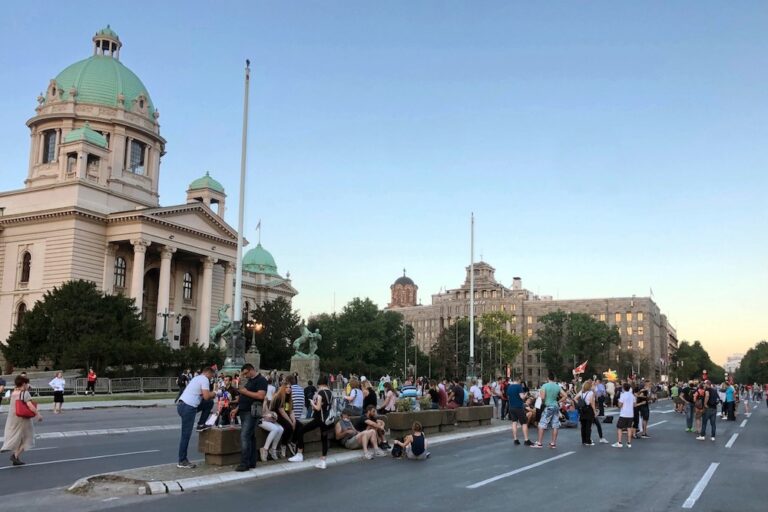(WAN/IFEX) – The following is a WAN press release: Paris, 12 July 1999 For immediate release Free Press in Yugoslavia Needed For Balkans Peace: WAN The World Association of Newspapers has renewed its call to Yugoslav President Slobodan Milosevic to repeal Serbia’s draconian press law, saying press freedom is a necessary condition for Balkans peace. […]
(WAN/IFEX) – The following is a WAN press release:
Paris, 12 July 1999
For immediate release
Free Press in Yugoslavia Needed For Balkans Peace: WAN
The World Association of Newspapers has renewed its call to Yugoslav
President Slobodan Milosevic to repeal Serbia’s draconian press law, saying
press freedom is a necessary condition for Balkans peace.
“The introduction of the law provided a legal basis for your government’s
ongoing campaign to eliminate independent journalism and silence all
criticism,” WAN President Bengt Braun said in a letter to the Yugoslav
President.
“By depriving your citizens of vital information about the situation in
Kosovo, outlawing dialogue among Serb people and stifling communication
between Serbians and the international community, the law contributed
significantly to the outbreak of war with NATO,” the letter said.
“A free press must be permitted in Serbia if peace in the Balkans is to be
rebuilt. It is only through open discussion that understanding will be
forged, tolerance promoted and a lasting solution to the problems of the
region secured,” it said.
The Serbian press law has been roundly condemned by governments and
international organizations, including WAN. The law introduces personal
liability for offences of free expression, imposes fines that are
disproportionate to the ‘crimes’ committed and inhibit freedom to contradict
state propaganda.
The law was recently used by President Milosevic’s son, Marko, who sued an
opposition newspaper in Belgrade for making fun of him. In January, a court
ordered the newspaper to pay him $15,000 for “inflicted moral damage.”
The Paris-based WAN, the global organization for the newspaper industry,
defends and promotes press freedom world-wide. It represents 15,000
newspapers; its membership includes 61 national newspaper associations,
individual newspaper executives in 93 countries, 17 news agencies and seven
regional press groups.


